
Until recently, Anat Zaada from Bat Yam and Carmela Porat from Ashdod worked for little compensation and less recognition. Preschool teachers' assistants like Zaada and Porat all across Israel, manage hectic schedules, take tremendous responsibility over childrens' lives, yet earn a pittance and have no formal job descriptions. "The assistants are everything in a preschool: janitors, psychologists, doctors," said Porat, a special education preschool teachers' assistant. Their union is now initiating a labor negotiation process that the assistants hope will improve their standing and gain them recognition for the difficulty and necessity of their work.

This month, the Histadrut, Israel's largest labor union, organized a set of round-table meetings with the preschool assistants' labor representatives, the Ministry of Education and the local municipalities (which are the primary employers of preschool staff in Israel). The objective of these round table meetings is to significantly increase preschool assistants' working conditions and improve the quality of Israeli preschools. The women who choose this demanding profession must love and care for children while facing dismal working conditions that, until this month's meetings, had not been formally addressed for over 30 years as classrooms became more crowded and working hours increased.
In Israel, average government spending on education for children under the age of three is only a quarter of the OECD international average ($2,971 per child per year in Israel, compared with $12,080 per child per year internationally). This relatively low spending rate on preschool education takes a toll on children and teachers: while European regulations mandate a seven-to-one child-teacher ratio in preschools, and United States government recommendations advise a ratio of no more than six-to-one (the law varies by state), the student-staff ratios in Israeli preschool classes regularly reaches as high as thirteen-to-one. Fifty-three percent of early preschool teachers reported that overcrowding at their preschools creates a stressful environment, and only a third of preschool teachers reported feeling that they are fairly compensated for the difficulty and responsibility of their work.
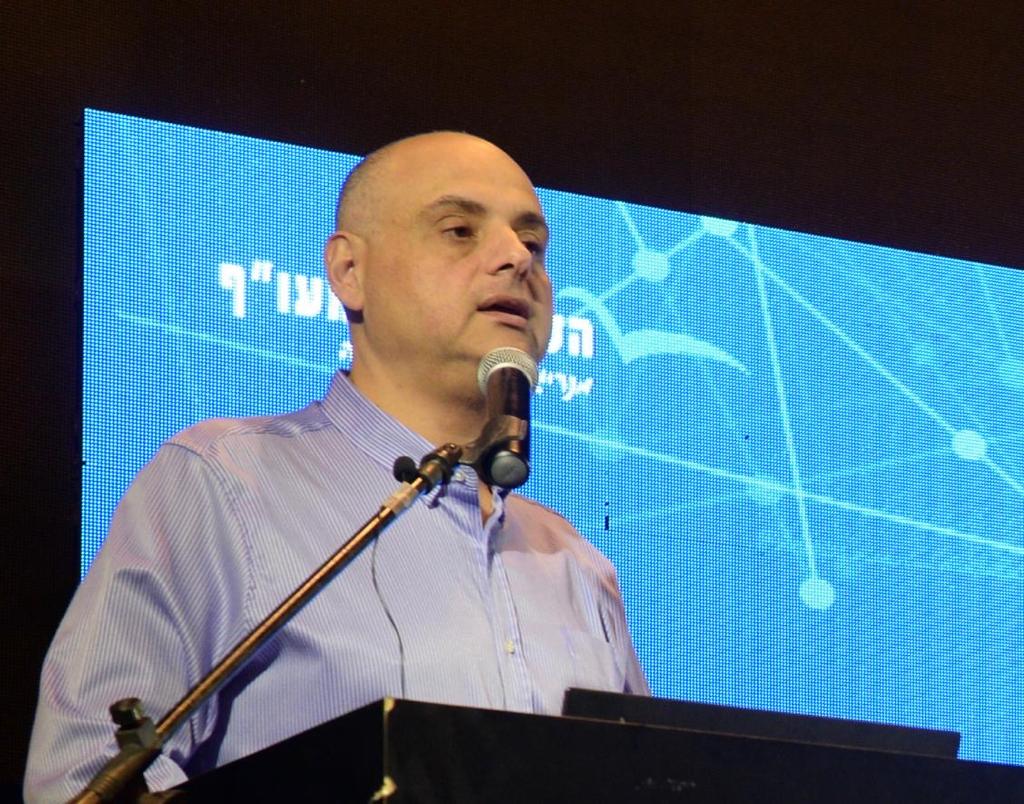
"These days, preschool assistants work 42 hours a week – from 7:30 a.m. until 3:30 or 4:30 p.m. They are collapsing," said Gil Bar-Tal, who heads UCAPSE, Union of Clerical and Public Service Employees, the branch of the Histadrut representing 240,000 government and municipal employees, among them the preschool assistants' union, and played a central role in the round table meetings. "We want a 36-hour work week, we want to limit the number of children to ten per staff member – it's impossible when there are more. We want to stress that preschool assistants are education professionals and not just caregivers. Their starting salaries should be more than minimum wage, unlike today. They should have more vacation days."
Anat Zaada can be found each morning starting at a quarter to seven at the 'Sfanim' preschool in the Ramat Yosef neighborhood of Bat Yam, preparing for another day with the children. This is her 18th year working as a special-needs preschool assistant. "I had a job as a secretary at city hall, but I wanted a change, I wanted to work with special-needs kids. I went to work at a school for children with autism but after the school moved to Tel Aviv, I came to the preschool in Ramat Yosef," she said. "It's rewarding work, and not everyone can work with special-needs children. It's not easy, but seeing a child progress over the course of the year is wonderful."
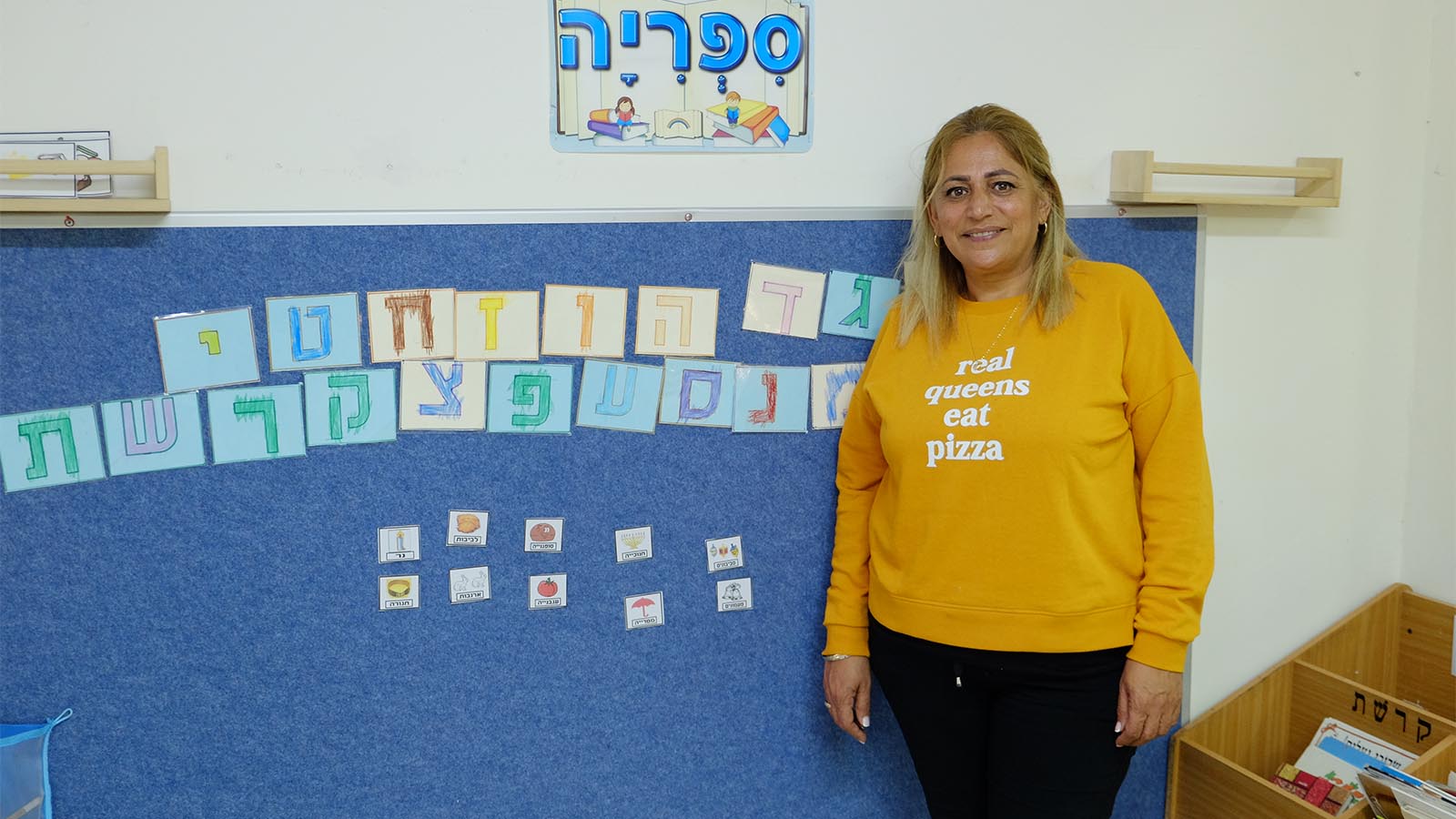
Zaade's preschool opens at 7:25 a.m. By that time, Zaade has already performed safety inspections of the preschool classroom and playground and stopped by the supermarket next door to buy food for the children's snack and lunch. "It's important to me to arrive at work early, drink coffee and start on a relaxed note, because I need to gather strength for the day ahead," she said.
Once the children arrive, Zaade's responsibilities include shepherding the children from activity to activity, arranging small groups for activities like art projects, gathering art supplies, serving the childrens' daily snack and lunch, and enforcing discipline. "Over the course of the day, children act out and need to be calmed down. That's why we have the 'thinking corner'. The child takes a chair – of course with the preschool assistant's help – and sits there, breathes, drinks a cup of water, talks over what happened a little bit, and usually is ready to return to the group after ten minutes."
At the end of the day, Zaade tidies up and washes the floors in preparation for the next day. "I come home feeling like I've worked 14 hours – but in a good sense."
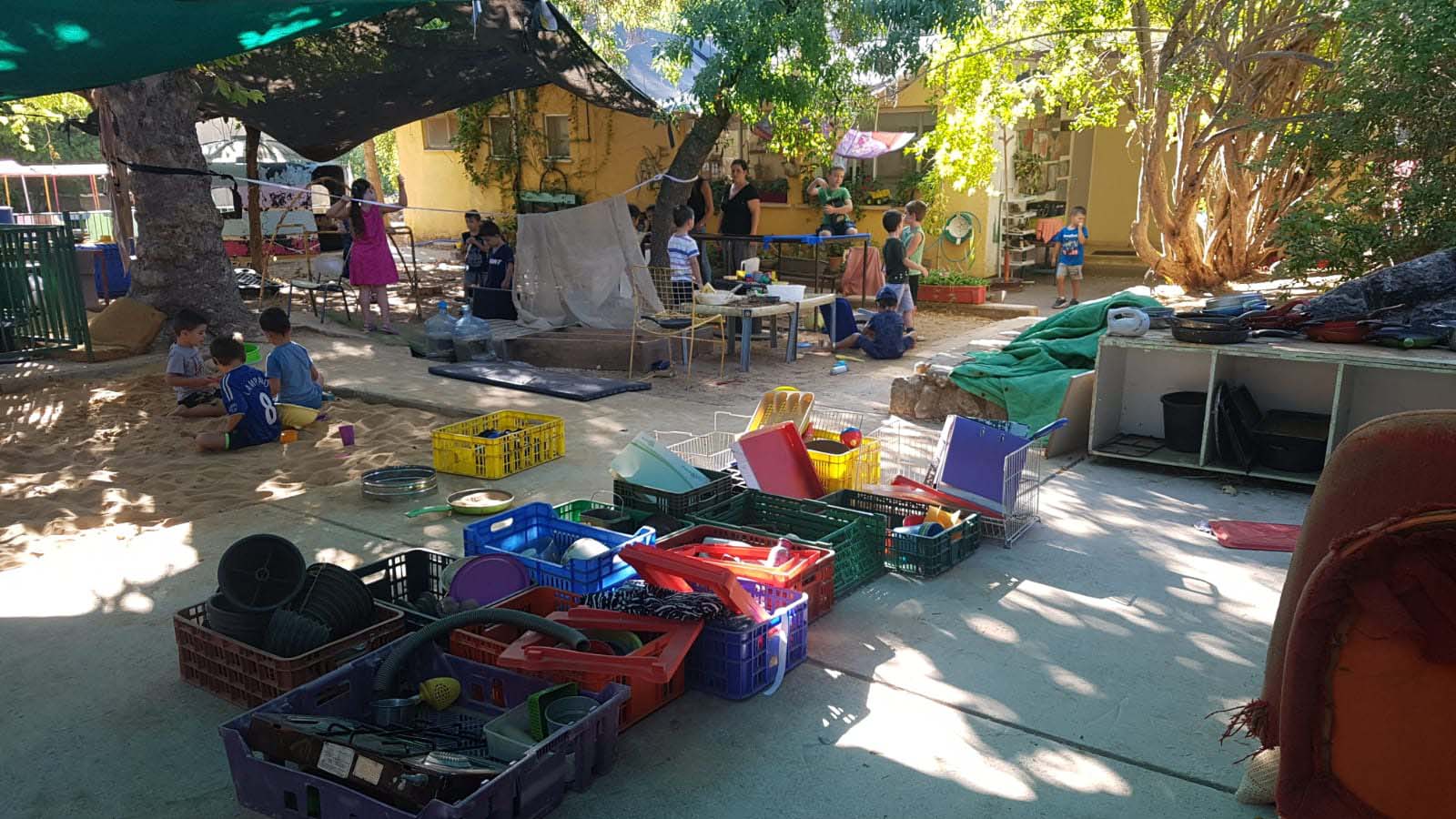
In addition to her work as an assistant, Zaade is a member of the local union and has represented the preschool assistants for years around issues like working conditions and wages. "We are five women on the local union committee. We represent 400 preschool assistants in Bat Yam, which we see as our duty. We run around a lot, taking care of them. I do this around the clock, starting as soon as the work day ends, and sometimes into the night and on weekends. The union representation is a volunteer position so we don't receive compensation for it. But I like it."
"Unfortunately, our salary doesn't reflect the responsibility we have. When an assistant starts a new job, whether or not she has prior experience, whether or not she has a degree, she starts at minimum wage (5,300 shekels, equivalent to 1,367 euros, per month), which is a really low wage. It isn't enough for anything, and it's a full time job. I always tell preschool assistants that they should take enrichment courses to earn add-ons to their salaries and not earn minimum wage. It's important that every enrichment course and each year of seniority is counted because they increase wages and pensions," she said.
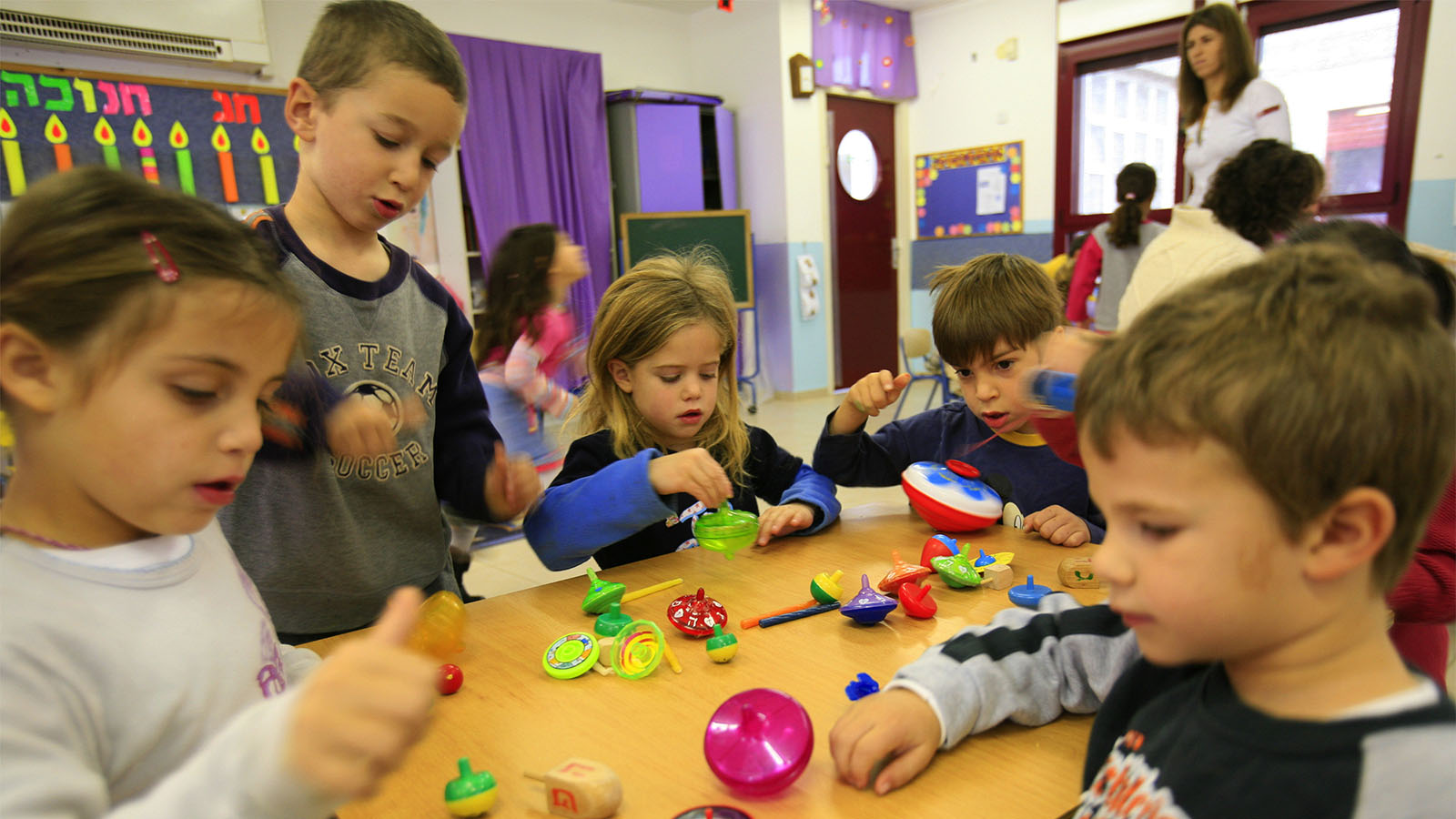
Regarding working hours, Zaade said that "We're paid as full-time workers, which is 42 hours a week, but we work more than that." Days off are also an issue "Sometimes an assistant will realize at night that she's sick, and there's no substitute, so she has no choice but to show up to work sick. There aren't enough workers because not everyone wants to be a preschool assistant. It's really tough work. Believe me, my knees and my upper back aren't what they used to be – but this is the choice I made."
Zaade told Davar that a significant part of the problem is that the perception of the preschool assistants' job – their salary, job definitions, and treatment – has not changed much while working conditions have become more demanding. "They need to pay us more than minimum wage. This isn't the same job it was thirty years ago," she said.
Carmela Porat has been fighting for preschool assistants for over two decades. She raised her children in Ashdod, where she worked in preschools for 18 years. Today she works in a special education preschool and loves her work and the children. "I'm crazy about this town, it's a very warm and friendly place."
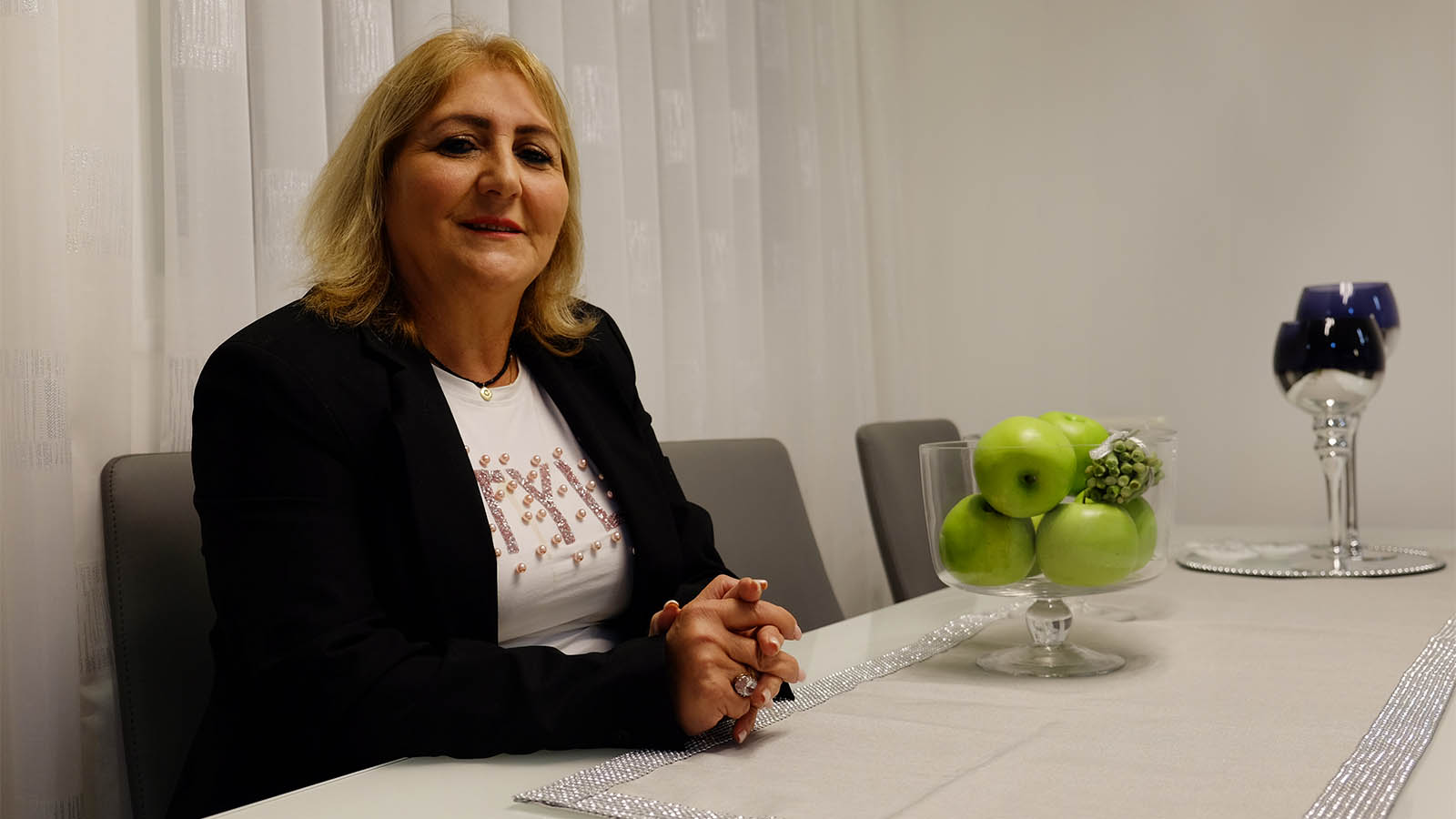
Porat began her career as a preschool assistant because she needed a job that would enable her to be home in the afternoon when her own children returned from school. Her husband worked until late and her mother and sister weren't able to help watch the kids. "Preschool assistants used to work until 1 or 1:30 p.m., which suited me." Today, in order to cater to families in which both parents work full-time jobs, preschools in Israel regularly operate until 4 p.m.
"I love to see how the children develop. They come to preschool at the age of 2 without basic learning skills, and over the course of two years with us they learn to read and write and follow directions, and leave ready for kindergarten. It brings me a sense of satisfaction like nothing else."
"A preschool assistant spends more time with a child than his or her parents do. She's the one that receives the child in the morning with a smile, no matter what kind of morning she's having. She always has to be kind and attentive. Any preschool assistant will tell you that one of the main aspects of the work is to put everything else aside and welcome each child exactly the way he or she deserves to be welcomed," Porat told Davar.
"Before I joined the union council, our wages and conditions were terrible. We were completely invisible and the union representatives would remember we existed only in the lead-up to union elections. Back then my kids were young and I didn't have time, but I remember telling myself that I've got to join the union as soon as the kids are older," Porat explained. But it wasn't that easy. "When I went to join the union's council, they told me that preschool assistants don't sit on the council. I said, ‘No way,’ and explained to him that preschool assistants are the largest sector in the government workers' branch of the union."

When asked how the assistants managed to bring their plight to the attention of the leadership in Israel's biggest union, the Ministry of Education and the local municipalities, Porat explained, "The preschool assistants understood that unless we joined the union council, we weren’t going to receive anything. Joining the council was the only way to start to win concessions. And now we are actually winning some concessions, but for 30 years we received nothing, which is why there's still a huge gap." She mentioned that while the assistants' working conditions have improved, their salary has remained stagnant. "I swore that I would fight to win all the rights we deserved – because we do deserve them," she summarized.






